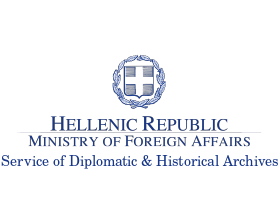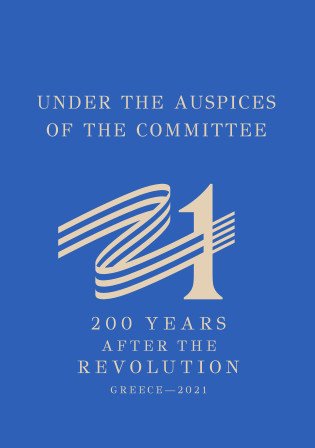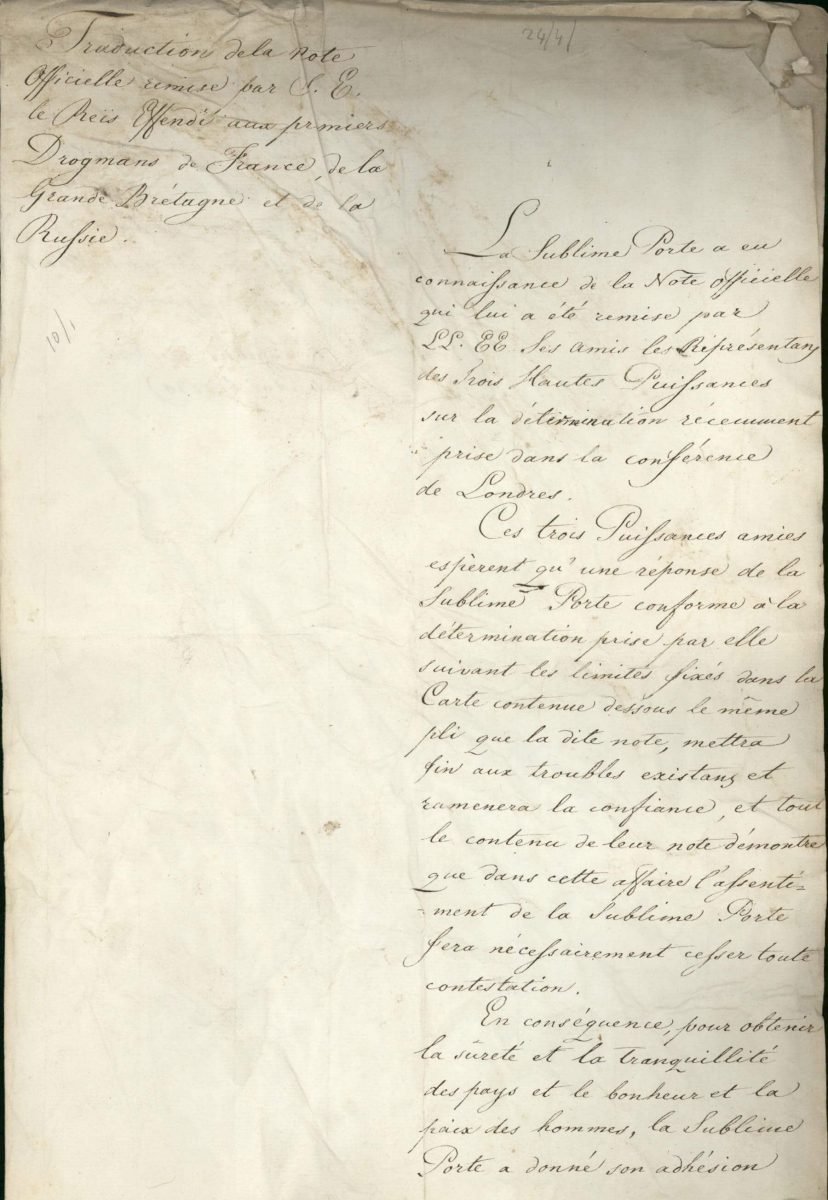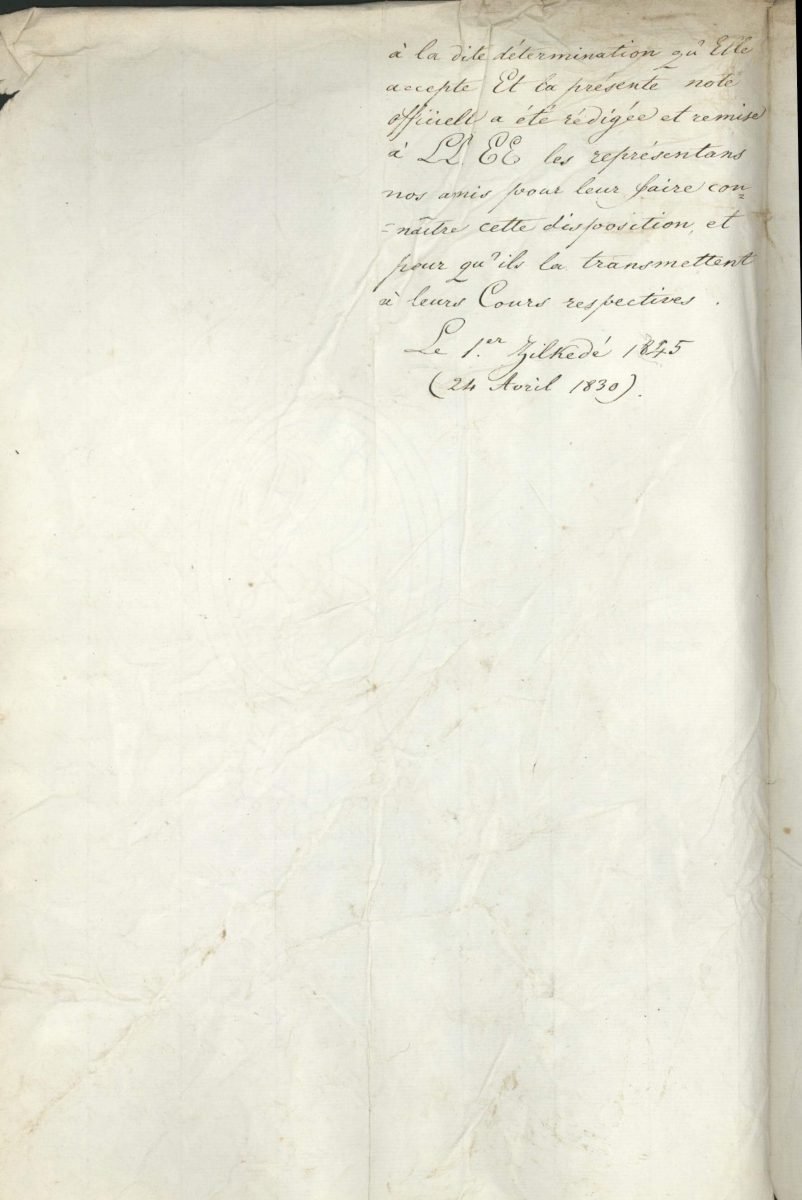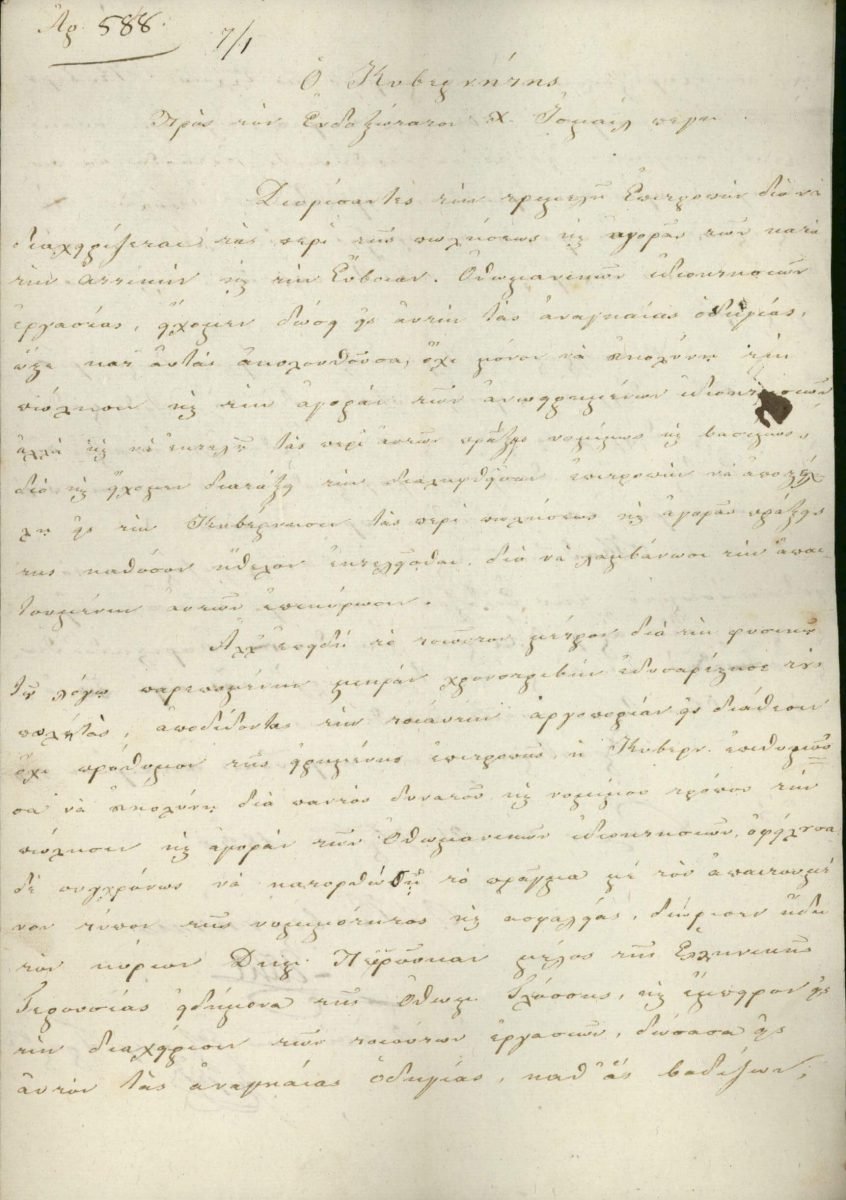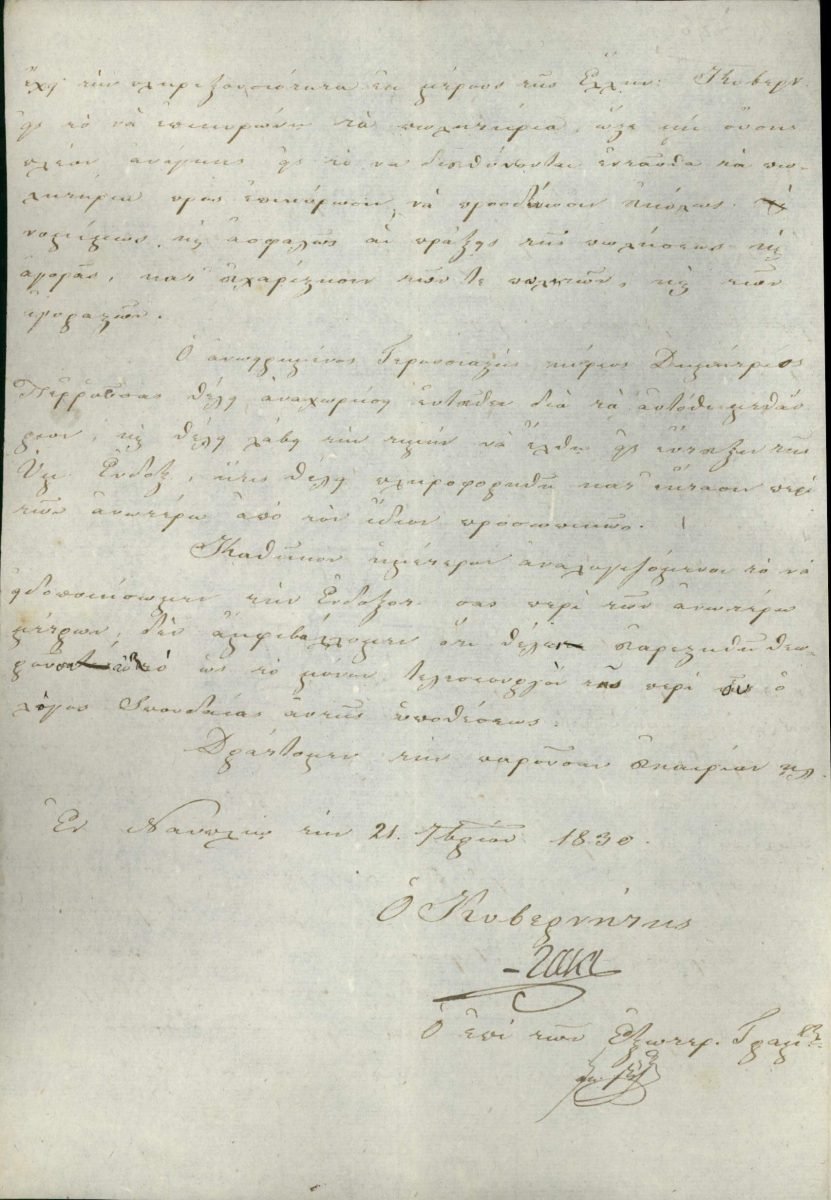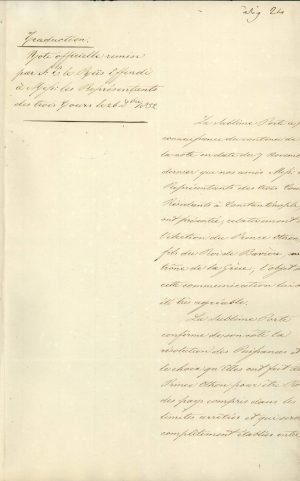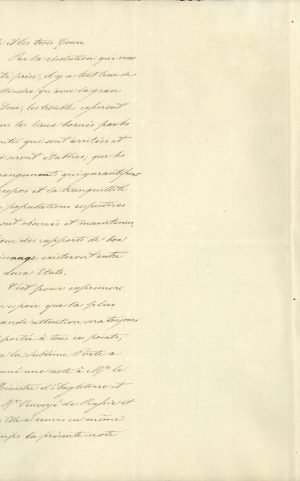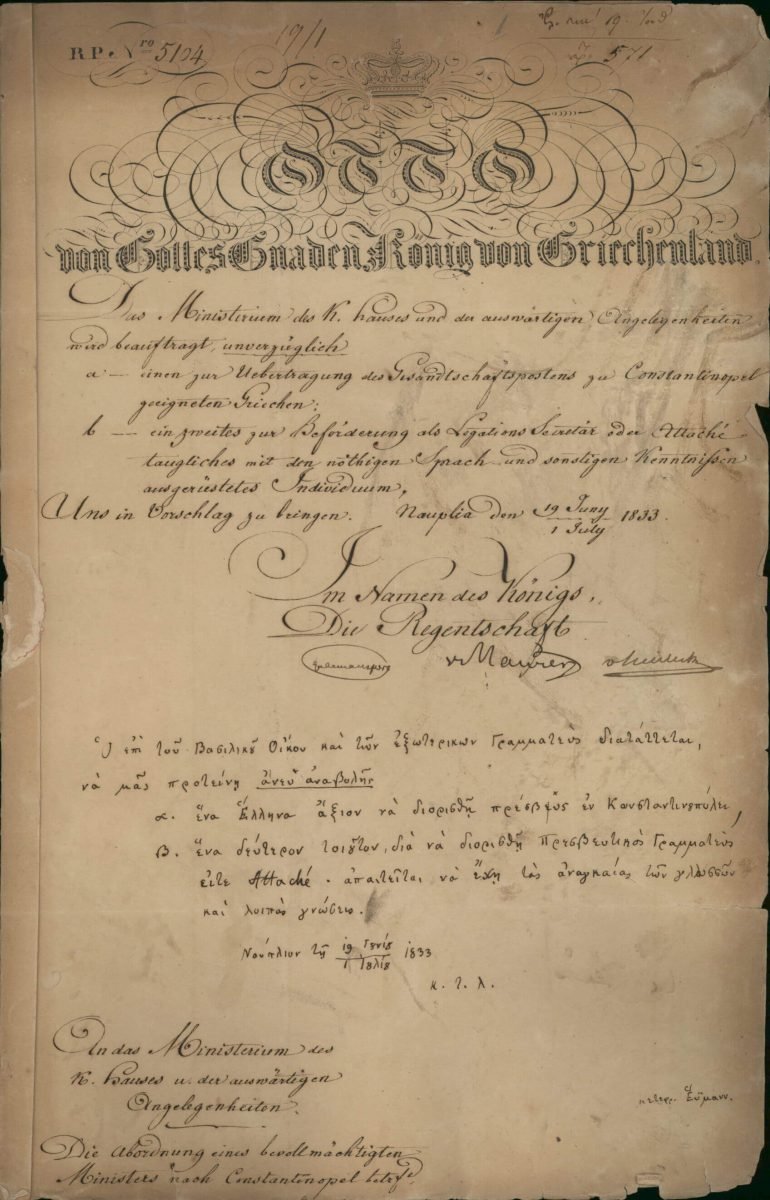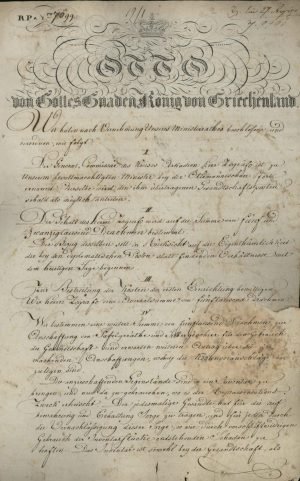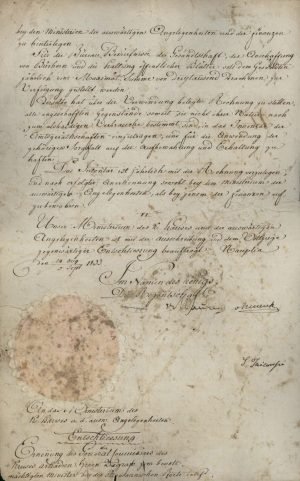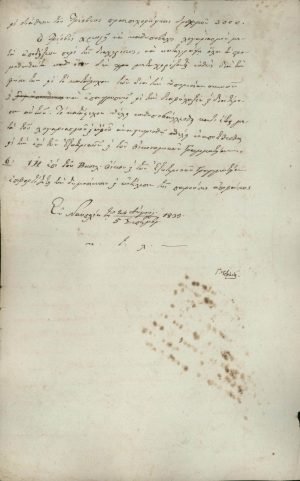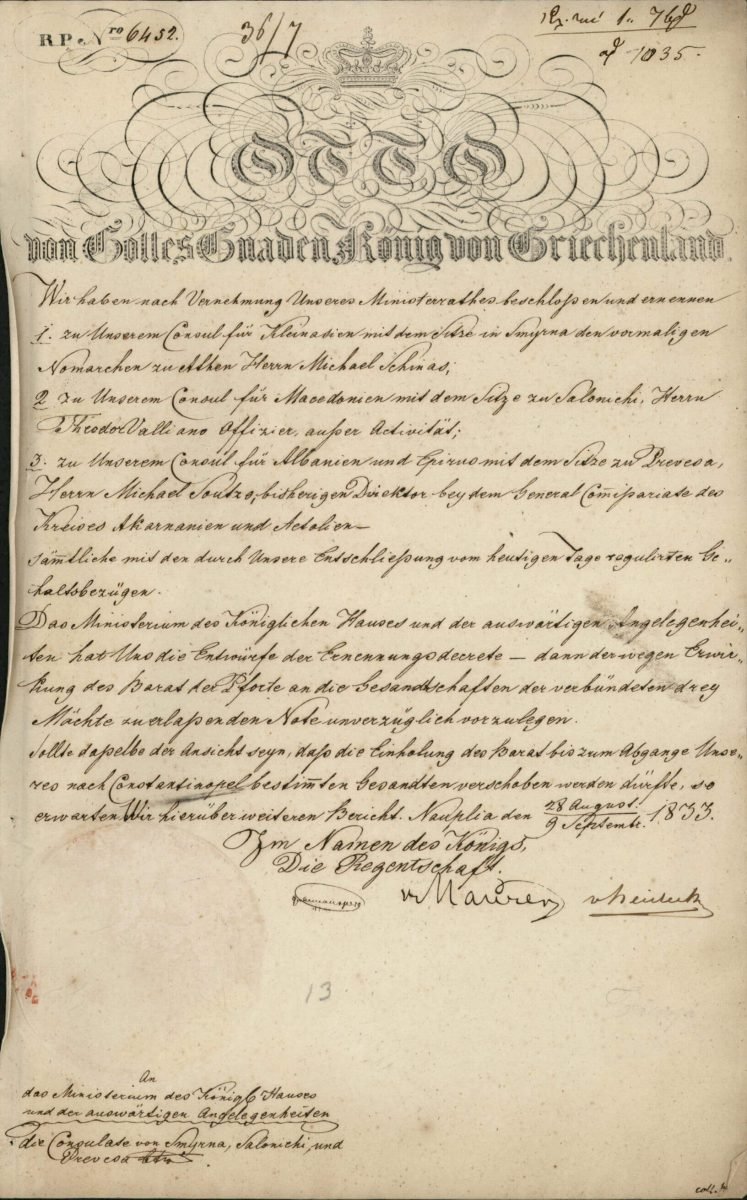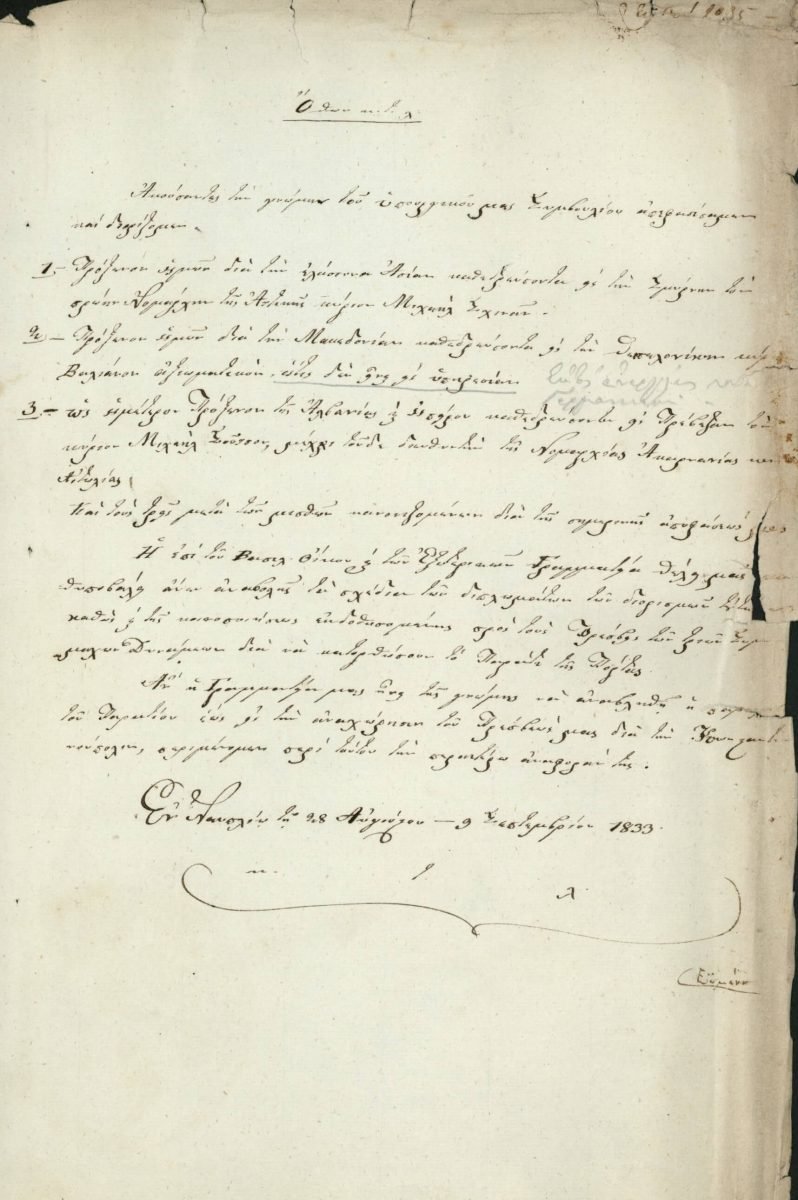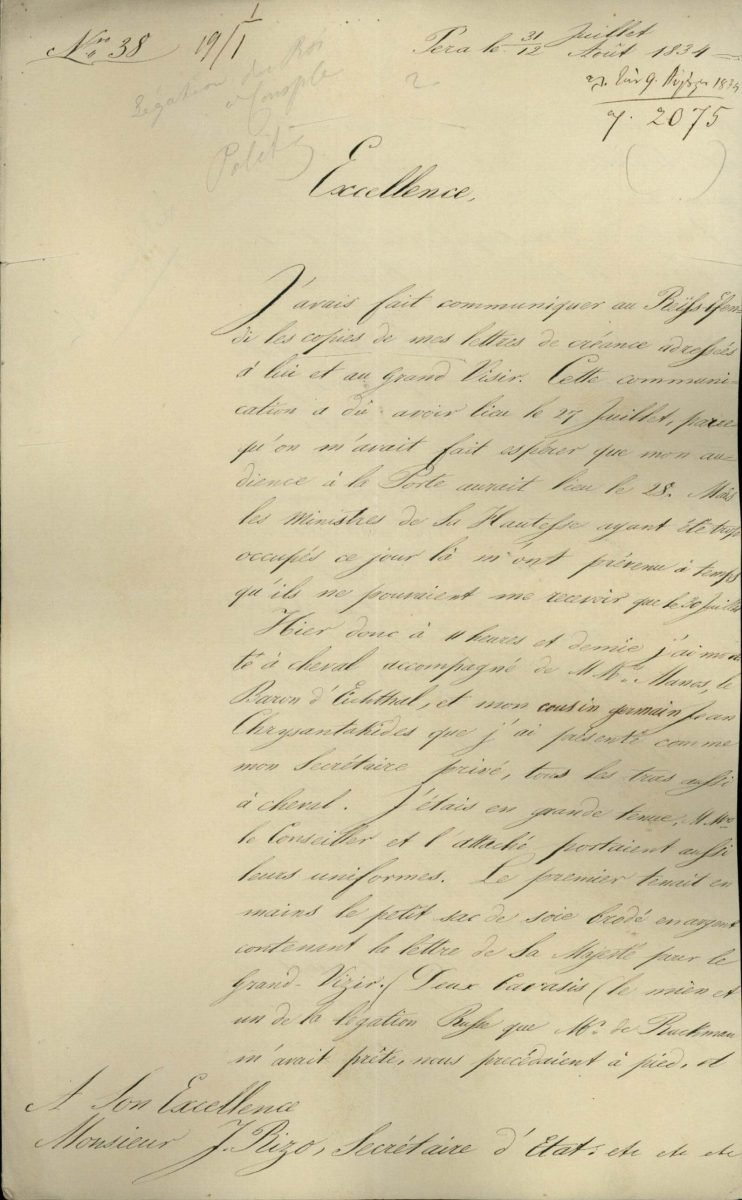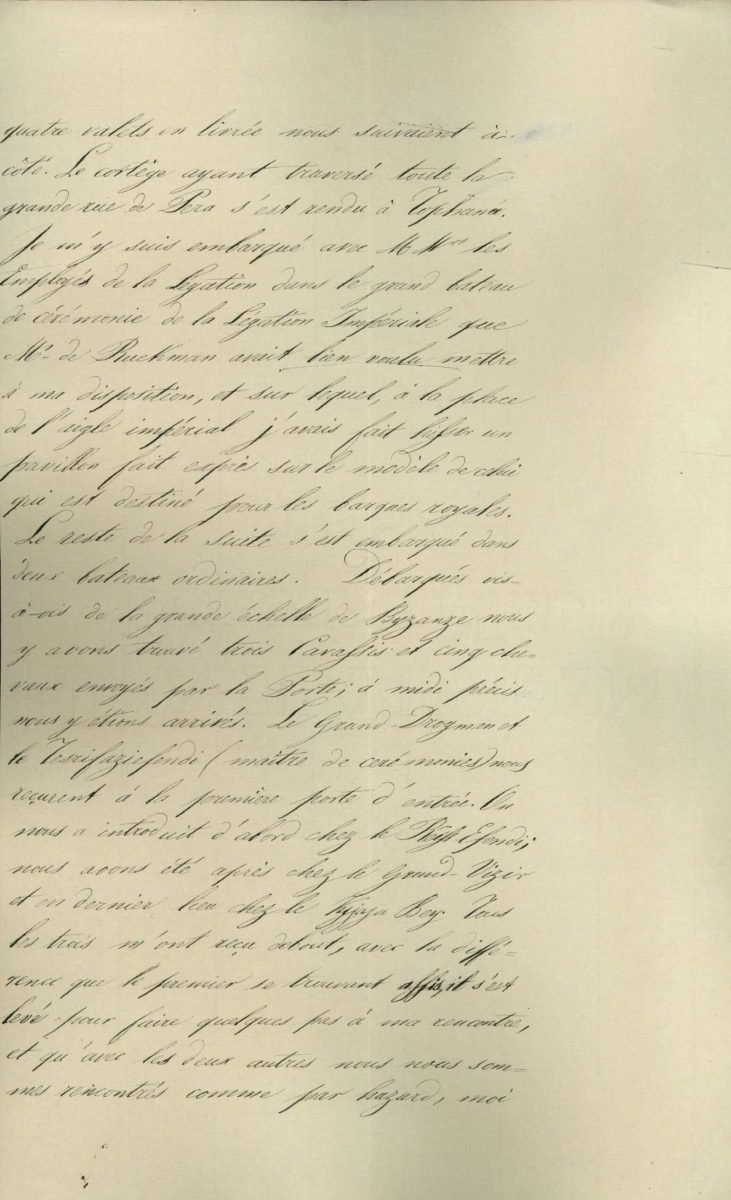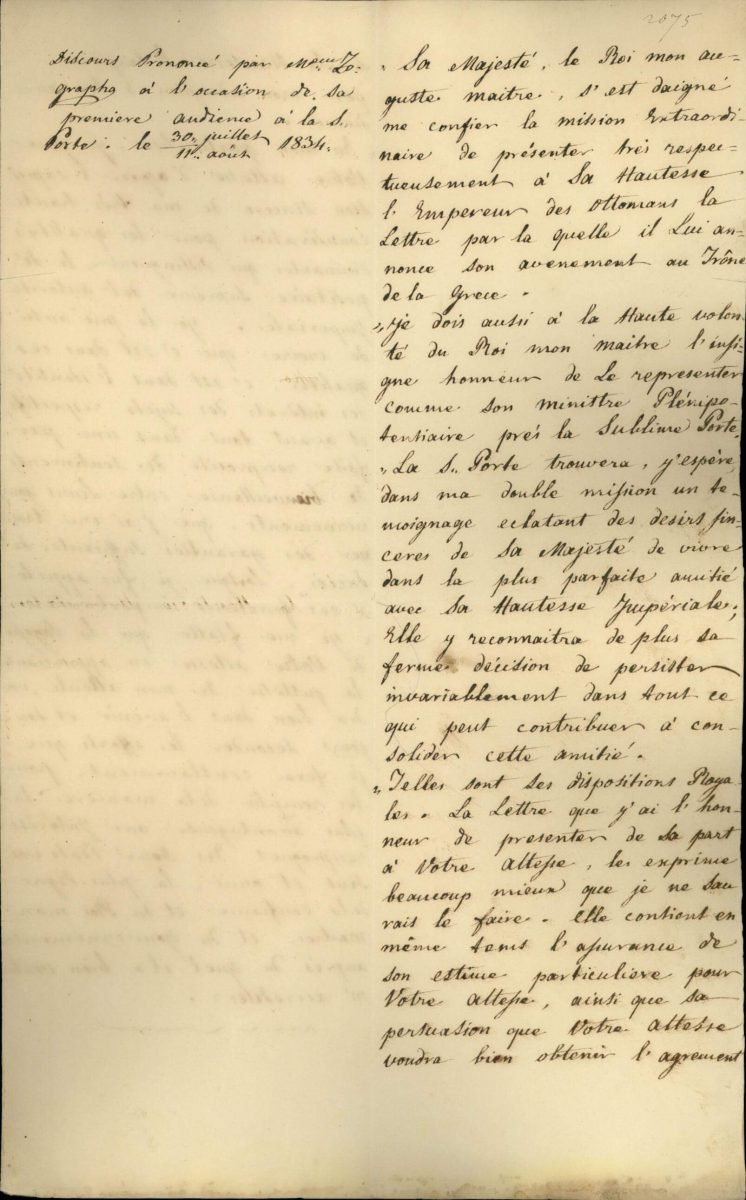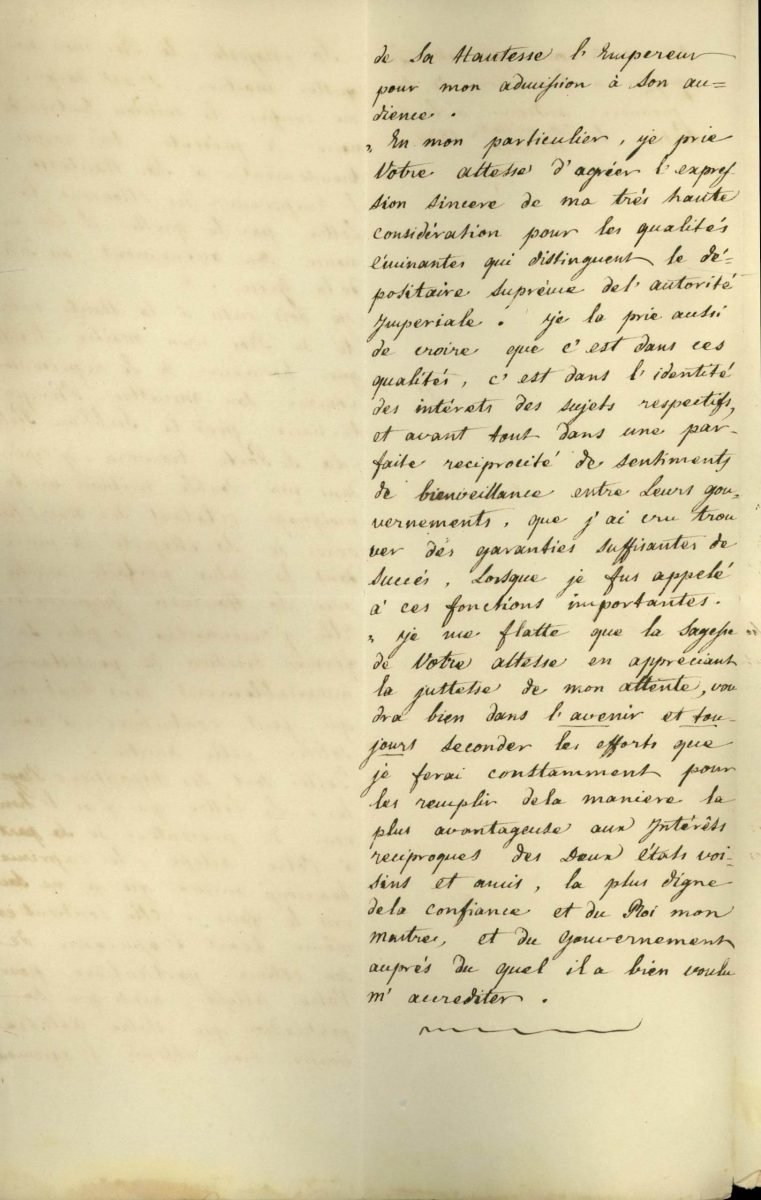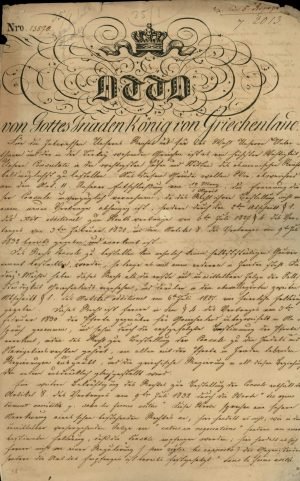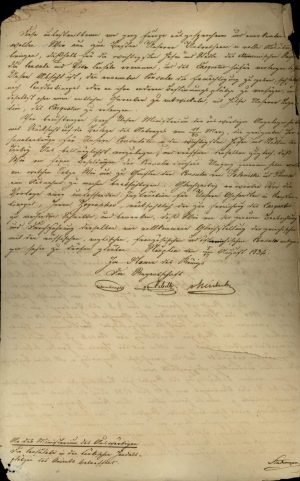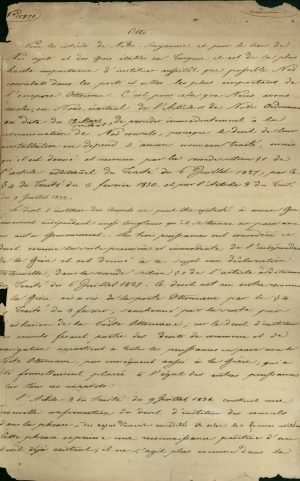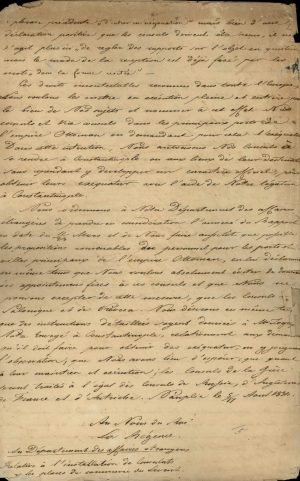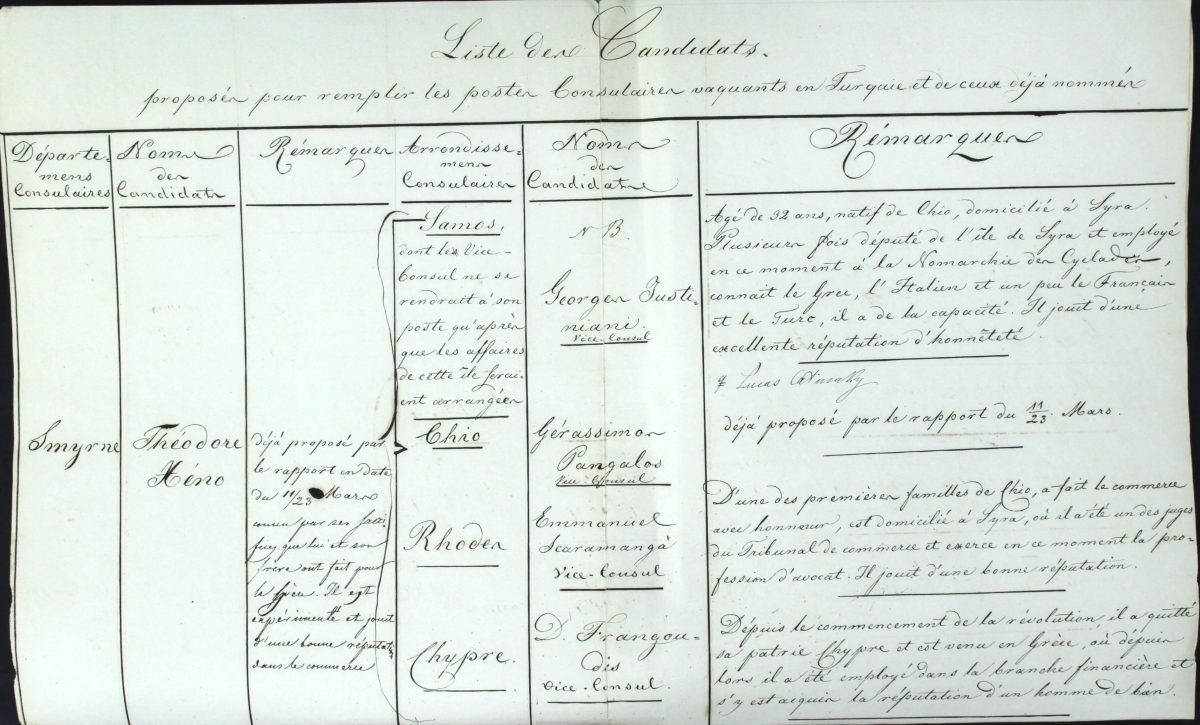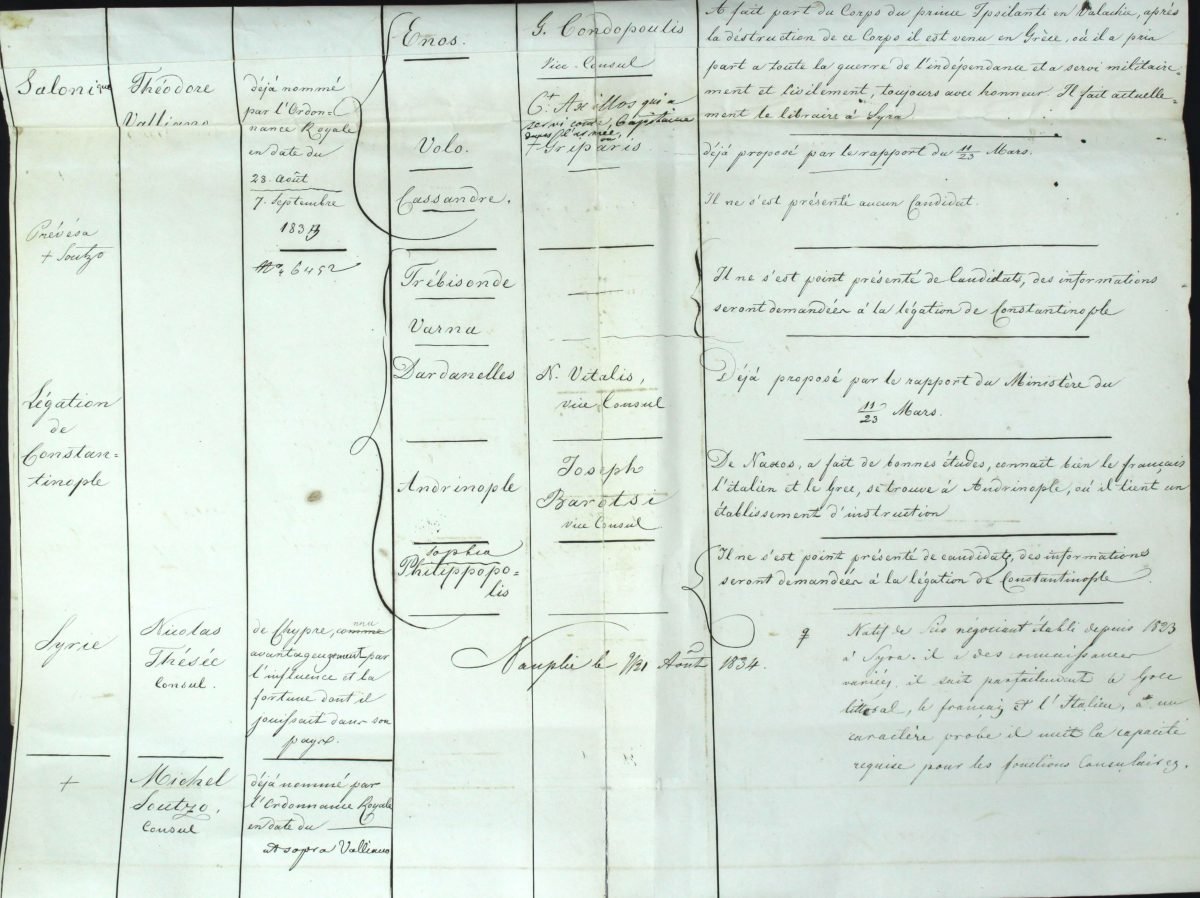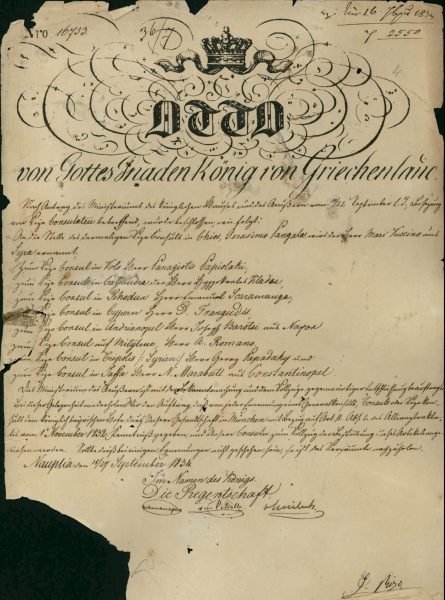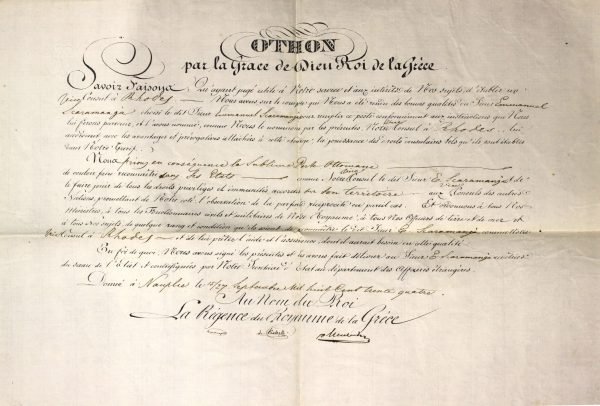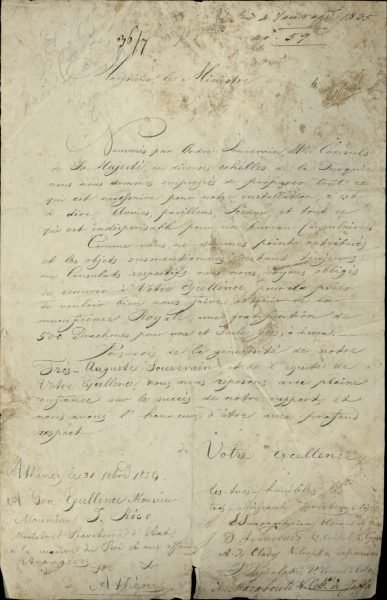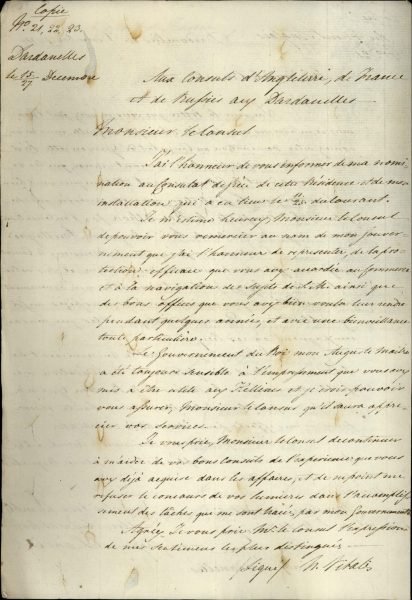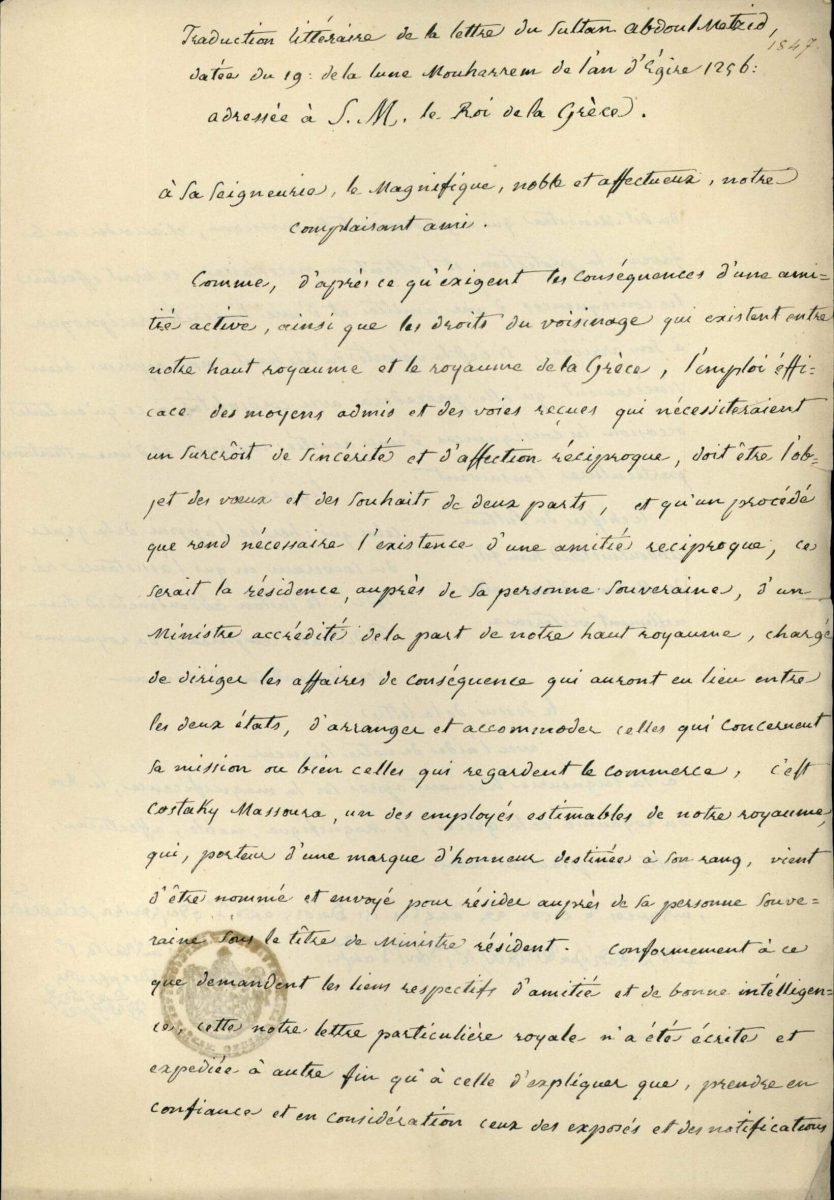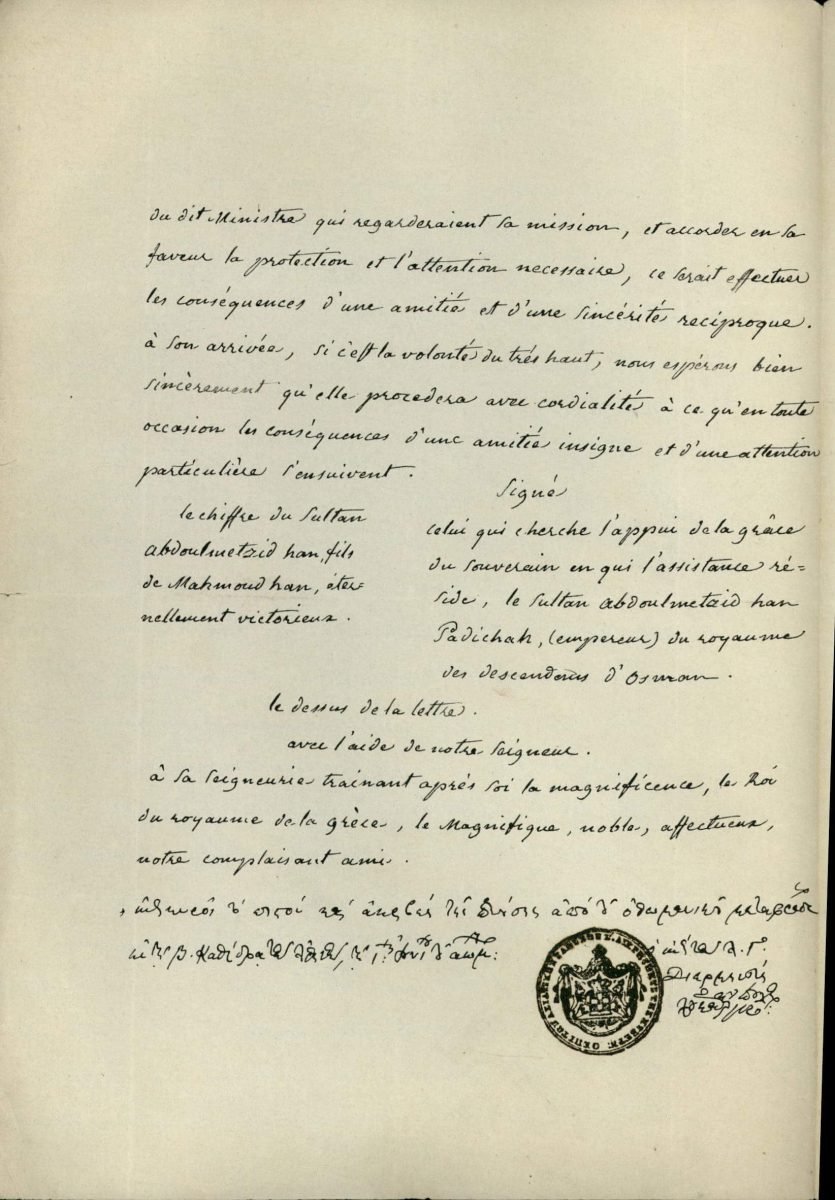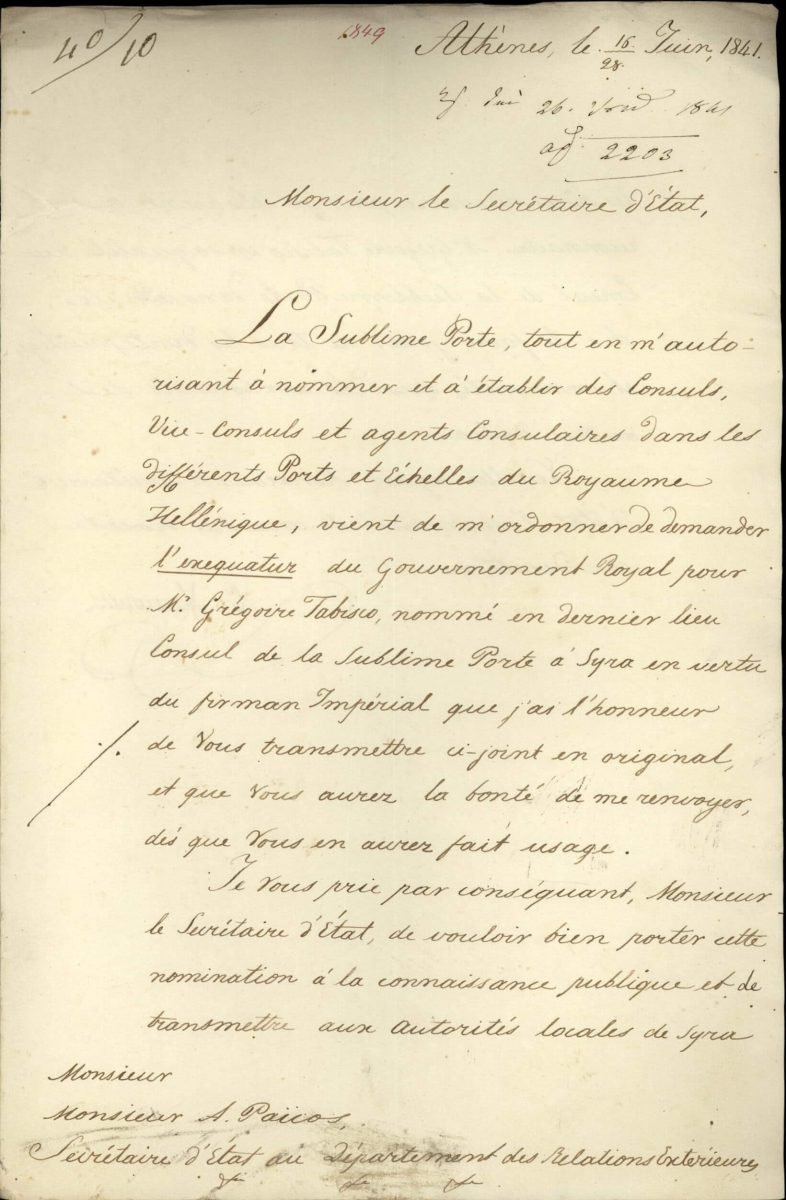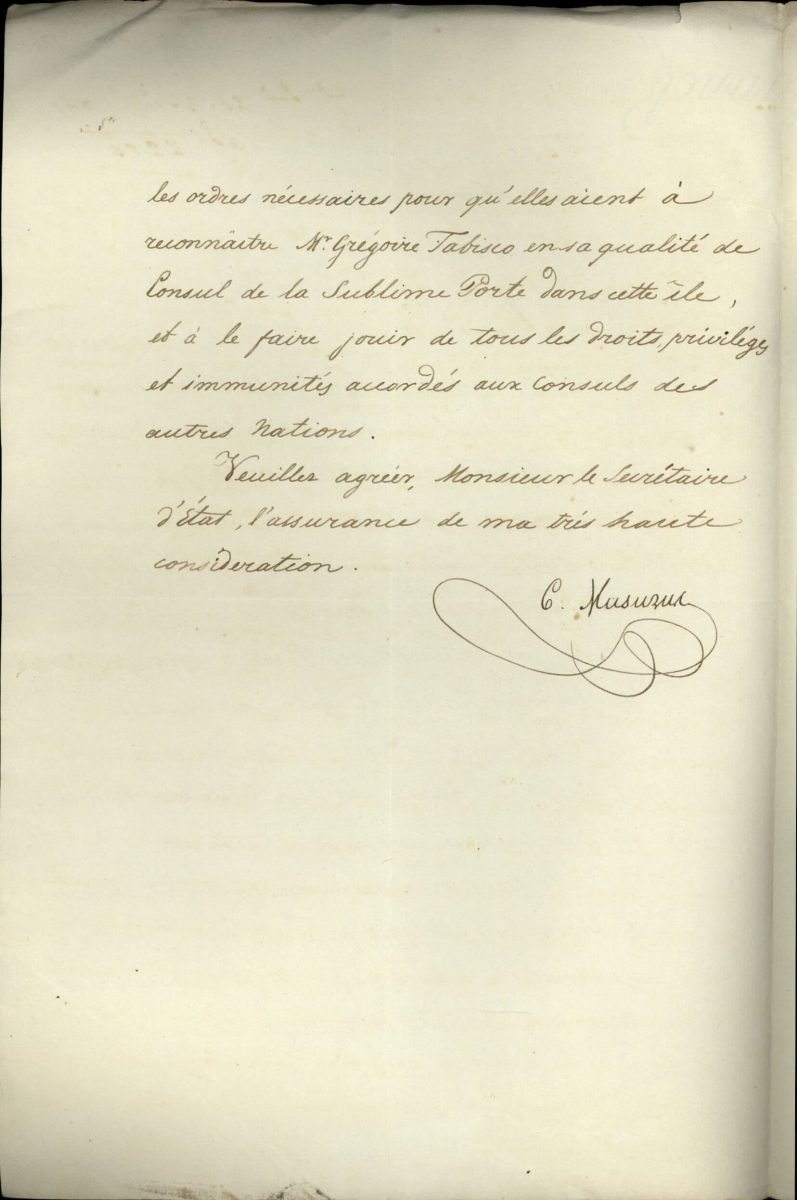12/24 April 1830. French translation of the Note of the Sublime Porte to the three Great Powers accepting the London Protocol of 3rd February 1830. It is considered as the text by which the Ottoman Empire officially recognizes the independence of Greece for the first time.
21 September [3 October] 1830. The contacts of the Ottoman Commissioner, Hadji Ismail Bey, with Governor Ioannis Kapodistrias for the sale of Turkish property in Attica and Boeotia, a few months after the signing of the London Protocol of 1830, were perhaps the first official contacts between Greece and the Ottoman Empire. This is one of the first relevant letters of the Greek Governor to Hadji Ismail Bey.
Article 8 of the Treaty of Constantinople (Arrangement of Constantinople, Treaty of Kalender Kiosk), signed on 9/21 July 1832 between the three Great Powers and the Ottoman Empire, provided for the possibility for Greece to enter into negotiations with the Sublime Porte in order to regulate commerce and navigation between the two countries, as well as for the possibility of nomination of (consular) Agents by both parties.
[14]26 December 1832. Translation of the Note of the Sublime Porte to the Chargé d’Affaires of France in Constantinople, in which the Ottoman Government acknowledges the election of Othon to the throne of Greece, stating that it is “very satisfactory” (“très agréable”), thus definitively recognizing the independence of the country and its borders “as they have been and will additionally be formed”. The Sublime Porte sent similar Notes to all three Ambassadors of the Great Powers in Constantinople, copies of which were handed over to the Greek Government through the respective Residents in Nafplio a few days after the arrival of Othon there.
19 June / 1 July 1833. The Regency orders the Minister of Foreign Affairs to recommend “without delay” a Greek worthy of being nominated Ambassador in Constantinople.
24 August / 5 September 1833. Decree nominating Konstantinos Zografos, until then Prefect of Arcadia, as the first Ambassador of Greece in Constantinople.
28 August / 9 September 1833. Decree nominating the first Greek Consuls in areas that still belonged to the Ottoman Empire: Theodoros Vallianos in Thessaloniki, Michael Soutsos in Preveza (Prefect of Aetolia-Akarnania until then) and Michael Schinas in Smyrna (Prefect of Attica until then). The Ottoman authorities, however, did not grant, for over a year, the required recognition for the Consuls that would allow them to go to their posts. In the end, Schinas never went to Smyrna.
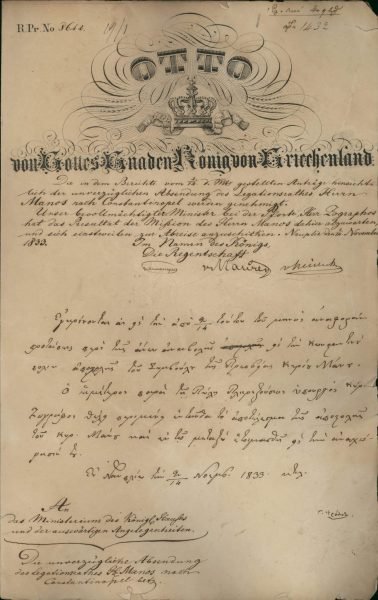
2/14 November 1833. The Regency orders the appointed Counselor of the Embassy in Constantinople, D. Manos, to leave for Constantinople in order to prepare the arrival of Ambassador K. Zografos and resolve any existing problems. On the contrary, Zografos is ordered to stay in Nafplio and wait for the results of Manos’ mission before departing.
31 July / 12 August 1834. The first two pages of the multi-page report in which Konstantinos Zografos describes vividly and in great detail the presentation of his credentials to Reis Efendi (Minister of Foreign Affairs) on 30 July 1834 and his relevant visit to Grand Vizier, almost a year after his nomination and almost 5 months after his arrival in Constantinople.
30 July / 11 August 1834. The address of the first Greek Ambassador (recognized as “Representative” by the Sublime Porte) in Constantinople, Konstantinos Zografos, during the presentation of his credentials.
5/17 August 1834. Strict instructions of the Regency to the Ministry of Foreign Affairs to continue the efforts for the nomination and recognition of Greek Consuls in the main cities and ports of the Ottoman Empire, due to their importance for the country’s trade relations and for the protection of Greeks living there. As the Sublime Porte refuses to recognize the Consuls already nominated by the Greek Government, the Regency emphasizes that the nomination of Consuls is a right of Greece as an independent State, also deriving from the Treaties and Protocols of Independence which explicitly cite it. Instructions are given to appointed Consuls to depart for their posts, even without prior recognition by the Ottoman authorities, and try to ensure it on the spot, with the assistance of the Greek Embassy in Constantinople. Moreover, it is hoped that they will be treated in the same way as the Consuls of the Great Powers.
9/21 August 1834. Draft list of candidates for nomination to consular posts in cities of the Ottoman Empire.
15/27 September 1834. Decree nominating nine Consuls and Vice-Consuls in areas in the Ottoman Empire.
15/27 September 1834. Consular diploma of the first Vice-Consul of Greece in Rhodes, Emmanouel Scaramanga.
31 December 1834 [12 January 1835]. Five nominated Greek Consuls in areas of the Ottoman Empire ask for one-off financial support from the Greek Government, as they remain inactive in Athens due to the delay in their recognition by the Sublime Porte.
15/27 December 1834. Copy of a letter by which the first Consul of Greece in the Dardanelles, Nikolaos Vitalis, notifies the local Consuls of the Great Powers of his establishment and recognition, which formally took place on 11/23 December 1834. Vitalis was one of the first Greek Consuls who assumed duties in an area of the Ottoman Empire.
14/26 February 1835. Theodoros Vallianos went to (still under the Ottoman yoke) Thessaloniki to assume the duties of Consul of Greece on 24 November 1834. First page of the document in which he describes his first visit to the Pasha of the city after his official recognition on 3 February 1835.
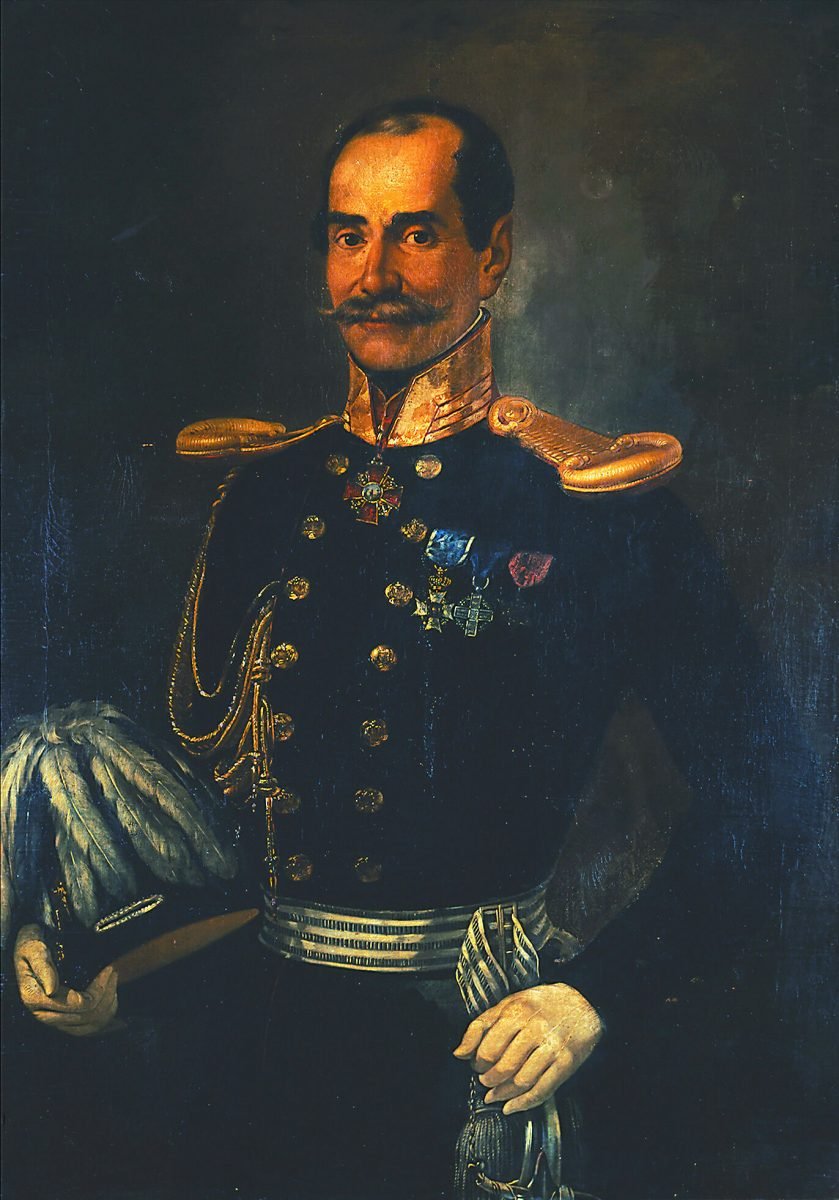
Theodoros Vallianos (1799-1857)
Portrait by Dionysios Tsokos
Source: National Gallery – Alexandros Soutsos Museum, Athens
23 March 1840. The first Ambassador (with the rank of Minister Resident) of the Ottoman Empire in Greece was appointed in 1840 and he was Konstantinos (Kostaki) Musuros. Translation of a letter from Sultan Abdul Mejid I to King Othon, delivered by Musuros along with his credentials.
